
10 Tips to Boost DHEA Levels
It is commonly believed that our body withers and deteriorates with age. As we get older most of us struggle to maintain muscle mass, skin elasticity, & bone mass. We develop conditions such as osteoporosis, osteoarthritis, varicose veins, etc. New research has shown that our DHEA levels are the critical player in how successfully we age and by boosting DHEA naturally we can turn back the clock on the aging process.
DHEA (dehydroepiandrosterone) is one of the critical hormones that scientists are calling the `fountain of youth.` This hormone is made from cholesterol by the adrenal glands and is a precursor to 18 steroid hormones including the commonly known sex hormones estrogen and testosterone. Healthy DHEA production is critical for lean muscle development, fat burning, bone growth, skin health, and immunity (1, 2, 3).

Statin Drugs Deplete DHEA Levels:
Cholesterol (statin) lowering medications reduce DHEA content and therefore accelerate the aging process. This is one of the reasons why cholesterol lowering medications have been linked to all-cause early mortality (4, 5, 6).
A DHEA deficiency significantly increases the risk of getting certain cancers (including breast, ovarian, prostate, and bladder), atherosclerosis, high blood pressure, Parkinson’s disease, diabetes, nervous system degeneration, and other age-related conditions (7, 8).
Our DHEA production naturally peaks between 20-25 years of age and then steadily declines. Many in our society see a sharp decline due to overburdened adrenals that are unable to synthesize adequate DHEA. This adrenal insufficiency syndrome is becoming more and more common due to an overstressed and malnourished American lifestyle.
The HPA Axis and the Stress Response:
The body perceives and adapts to stressors through what is called the hypothalamic-pituitary-adrenal (HPA) axis. This area of the brain called hypothalamus senses the environmental conditions and then it sends signals in the form of chemicals to the pituitary gland.
The pituitary gland receives the signals from the hypothalamus (corticotropin releasing hormone – CRH) and sends its own chemical signals to the adrenal cortex through a hormone called adrenocorticotropic hormone (ACTH) in order to form the appropriate responses to the environmental stimuli.
When we are under chronic stress it creates an alteration in the HPA axis which reduces the body’s ability to adapt to new stressors. This condition is called adrenal fatigue or HPA axis dysfunction, which can also progress further to adrenal exhaustion. This process of stress and poor adaptation can lead to a vicious cycle of chronic inflammation, tissue breakdown and accelerated aging (9).
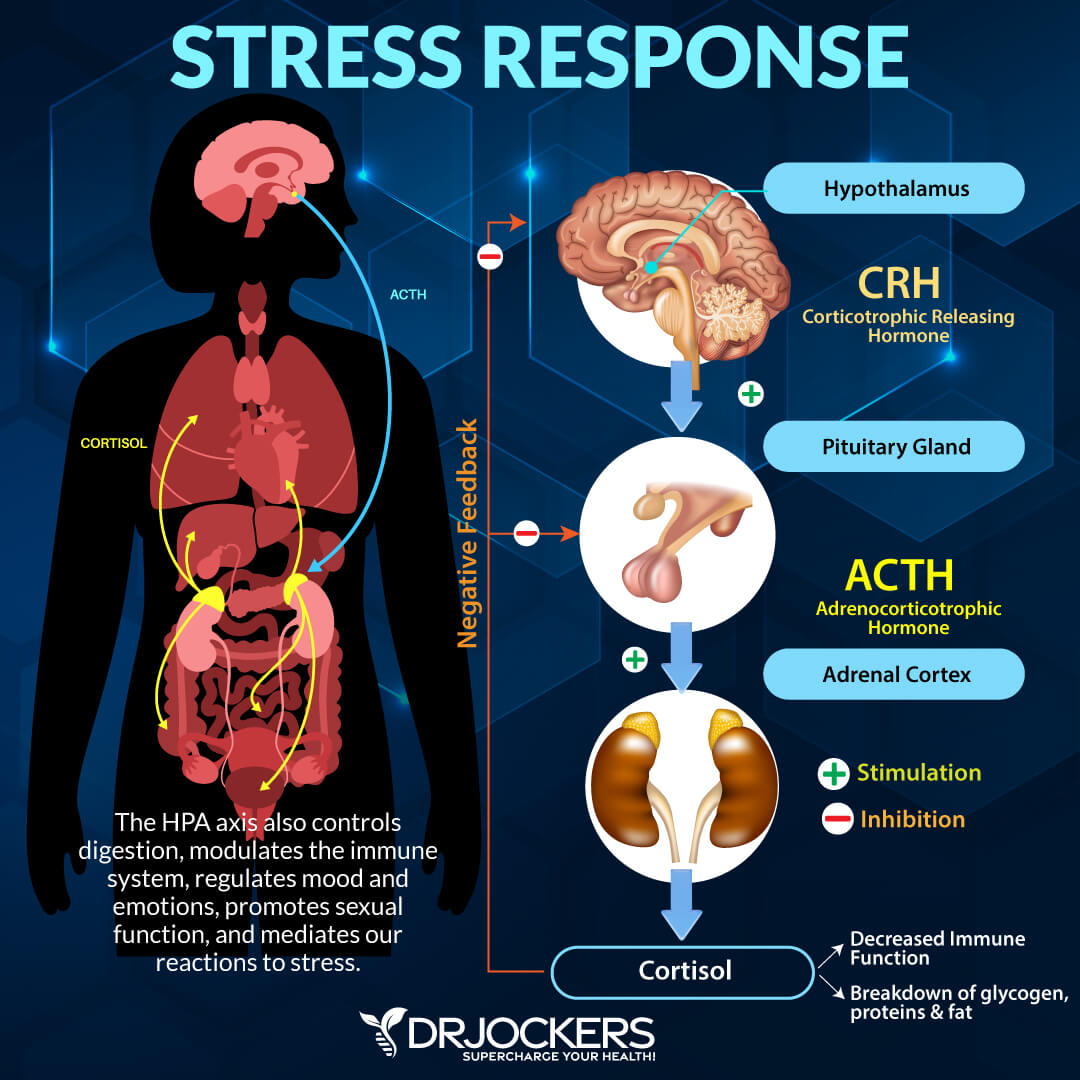
Stress Hormones Before Sex Hormones:
The adrenal glands help to regulate the body’s ability to adapt to stress and they also produce hormones that regulate reproduction. The caveat is that adapting to stress overrides reproduction. Adapting to stress is critical for immediate survival and that is first priority. Once our physiology understands that we are not under an environmental threat, than it will focus its energy on reproductive hormones.
The major stress hormones are cortisol, epinephrine and norepinephrine. These hormones help increase energy, increase blood sugar levels and speed up circulation and respiration to help the body survive through fight or flight.
The major sex hormones produced by the adrenals are estrogen, progesterone and testosterone. These are all critical for growth, metabolism, strength, endurance, mental drive, menstrual function and reproductive ability.
The master compound that is used by the body to produce cortisol and progesterone is called pregnenolone. Pregnenolone can either create cortisol, progesterone or DHEA. DHEA is used by the body to produce testosterone and estrogen. When the body is under chronic stress there is a high demand to produce cortisol which reduces the amount of progesterone and DHEA that is produced (10).
Elevated Insulin Blocks DHEA Production:
High sugar and carbohydrate consumption increases blood sugar and insulin levels. Elevated insulin causes a decreased production of DHEA in the adrenals. Blood sugar imbalances also create critical vitamin and mineral imbalances that stress the adrenals and reduce DHEA production (11).
High stress and poor sleeping habits also cause increased cortisol (stress hormone) levels. When these issues become chronic they cause a phenomenon called `pregnenolone steal.` Pregnenolone is a byproduct of cholesterol metabolism that is necessary to produce both cortisol and DHEA.
High stress causes this process to shift towards cortisol production. This shift essentially `steals` the necessary pregnenolone from the DHEA production pathway to produce more cortisol. This process depletes DHEA levels (12, 13).
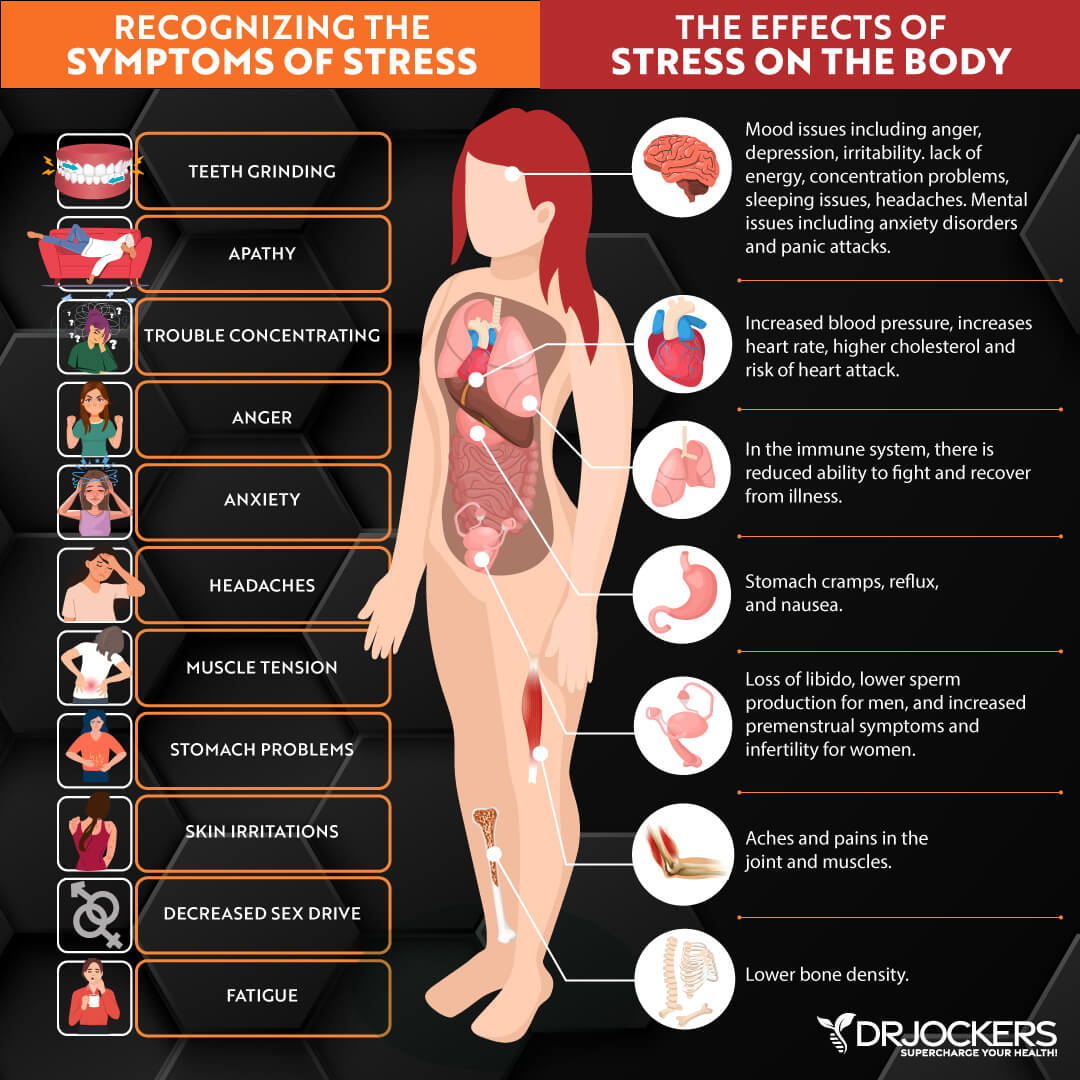
Correct the Adrenal Stressors First:
Many people rush out and look for DHEA boosting supplements, however, lifestyle factors that deplete DHEA levels should be addressed first. The most important factor includes reducing/eliminating adrenal stressors such as medications, stress, leaky gut syndrome, parasites and other infectious agents, chronic inflammation, physical nerve stress, nutrient deficiencies, poor sleep, & blood sugar imbalances.
We may need to work a lot on mental and emotional issues as well and you can practice deep breathing, gratitude, positive affirmations, prayer, and community support to assist in this area. Additionally, high exposure to electromagnetic fields (EMF’s) can trigger high stress hormone output and low DHEA levels.
An anti-inflammatory diet is a critical part to de-stressing the body and boosting DHEA levels. This diet should be very low in sugar and carbohydrates and very rich in phytonutrients and trace minerals from fresh, raw or lightly steamed vegetables. Powerful anti-inflammatory herbs such as turmeric, ginger, rosemary, thyme, oregano, & cinnamon should be generously consumed on a regular basis.
Diet is Key to Producing Optimal DHEA:
Healthy fat consumption is an essential part of creating cholesterol which is needed to produce DHEA. Healthy fat sources include coconut products, avocados, olive oil, nuts, seeds, & purified omega-3 fish oil supplements. Healthy protein sources to boost DHEA production include wild-caught fish, grass-fed red meat and free range chicken, turkey, and eggs.
Vitamin D plays a very important role in healthy DHEA levels (14). I recommend getting regular sun exposure and/or supplementation to maintain vitamin D (25-OH) levels between 60-100 ng/ml. Using supplemental vitamin D can be very helpful and is highly recommended.
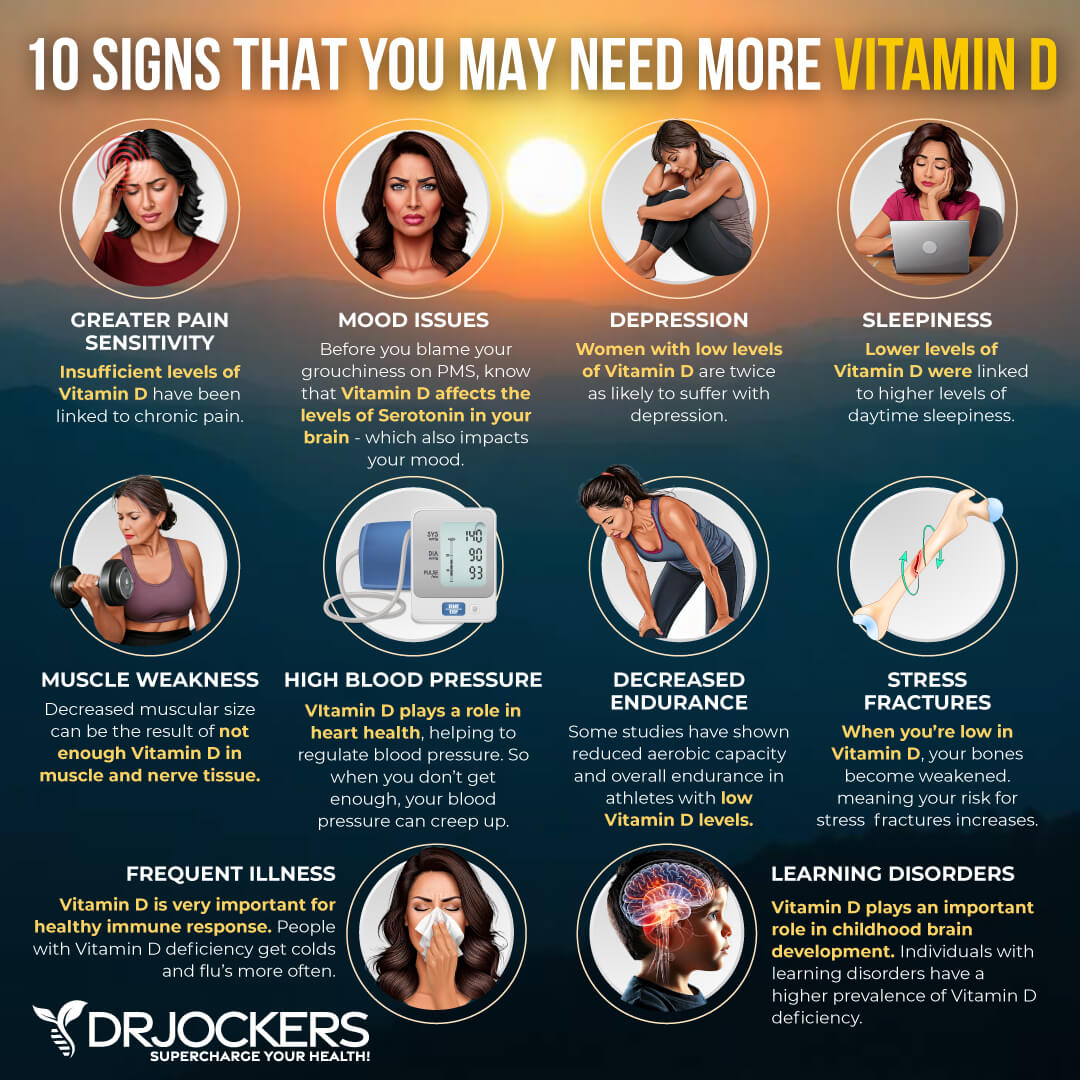
Top Strategies For Improving DHEA Levels
To age successfully, we need to follow lifestyle strategies that balance our adrenals and support optimal DHEA production. In order to do this, there are certain key lifestyle principles that we need to be aware of.
The common patterns of our society deplete DHEA production and cause us to age poorly and experience more suffering throughout our lives. We have to make positive choices to optimize our ability to heal and function at our best. Let’s go through these principles.
Reduce Stress & Improve Sleep
Reducing stress and improving your sleep are key steps to lower the production of stress hormones, inflammation and oxidative stress. As a result of this, your body will be able to produce optimal DHEA levels. I recommend that you engage in activities that lower your stress levels, relax your body, and calm your mind.
Meditation, breathwork, journaling, grounding, gratitude, prayer, positive affirmations, practicing a positive mindset, spending time outside, exercise, connecting with loved ones, taking healing baths, and smiling more are great ways to reduce your stress levels. Make sure that you sleep 7 to 9 hours a night.
Go to bed and wake up at the same time to support your circadian rhythm and natural sleep cycle. Make sure that you get quality sleep instead of interrupted bursts of sleep. To support your sleep, make sure to remove sugar, avoid food and electronics close to bedtime, have a comfortable bed, bedding, and pillows, have a calming bed-time routine, and reduce stress overall.

Anti-Inflammatory Nutrition Plan
As you know, chronic inflammation and blood sugar imbalances are a major factor in lower DHEA and your body’s ability to heal and repair itself. A poor diet will lead to insulin resistance, oxidative stress and a depletion of DHEA levels.
Eating an anti-inflammatory nutrition plan is key to reducing chronic inflammation in your body and supporting optimal adrenal and sex hormone function. Remove inflammatory foods, such as refined sugar, refined oil, deep-fried foods, junk food, artificial ingredients, sodas, sugary drinks, and processed foods.
Follow an anti-inflammatory nutrition plan abundant in greens, vegetables, herbs, spices, low-glycemic index fruits, nuts, seeds, healthy fats, clean protein, and fermented foods. To learn more about the anti-inflammatory, ketogenic nutrition plan I recommend, read this article.
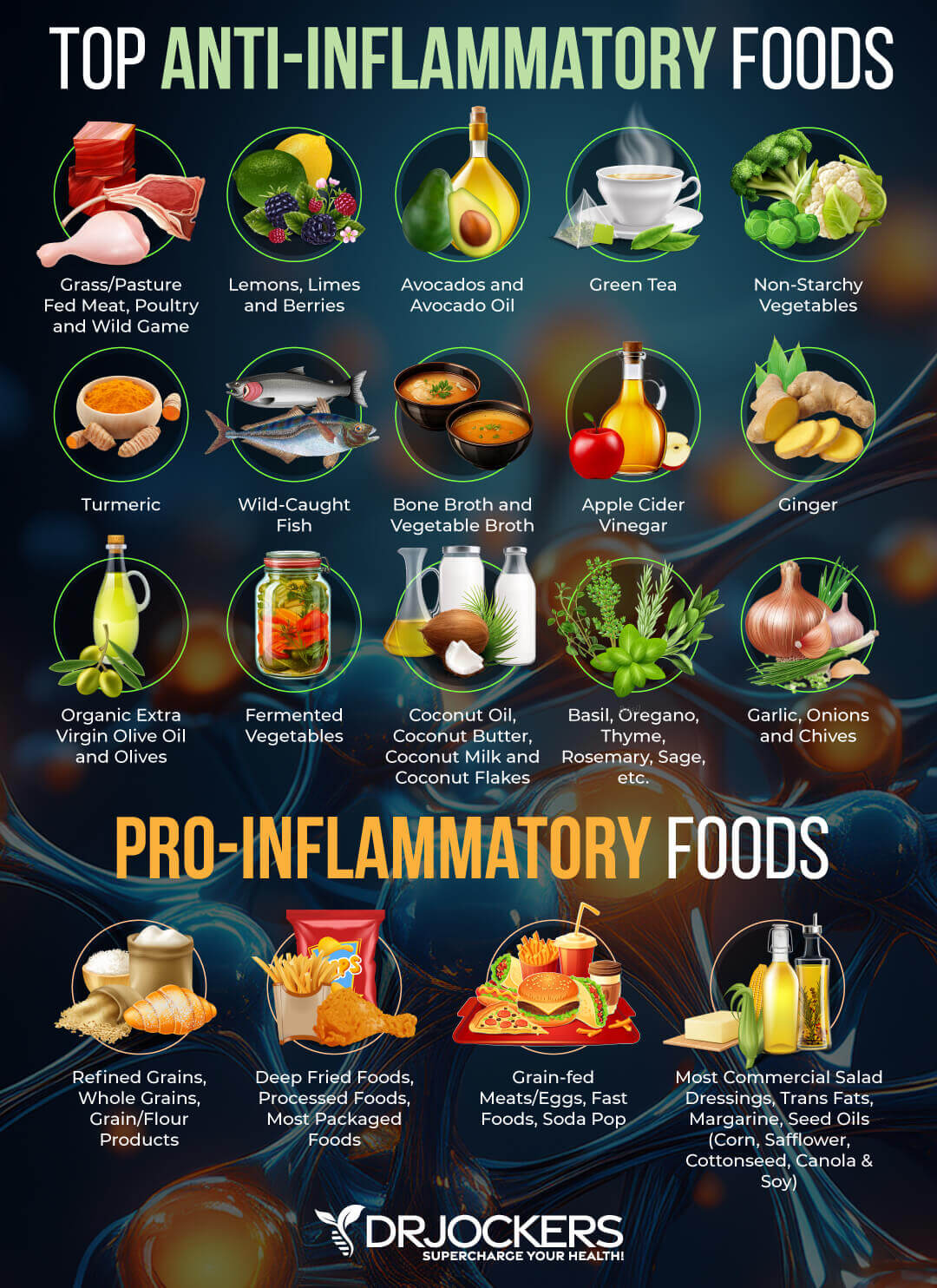
Intermittent Fasting
Intermittent fasting is a form of eating that cycles between not eating (fasting) and eating (feasting) over a period of time. It has countless benefits including cellular repair, increased autophagy, better immune regulation, reduced inflammation levels, increased insulin sensitivity, and lower risk of disease.
Intermittent fasting helps to create a healthy balance between stress hormones, DHEA and sex hormone production. Most people experience the most benefits with the 16:8 approach involving 16 hours of fasting, however, watch your body, energy levels, and symptoms to find what works best for your body.
Make sure to eat plenty of nutrient-dense, anti-inflammatory foods during your eating window, and meet your caloric needs. To learn more about the benefits of intermittent fasting and best intermittent fasting practices, I recommend this article.
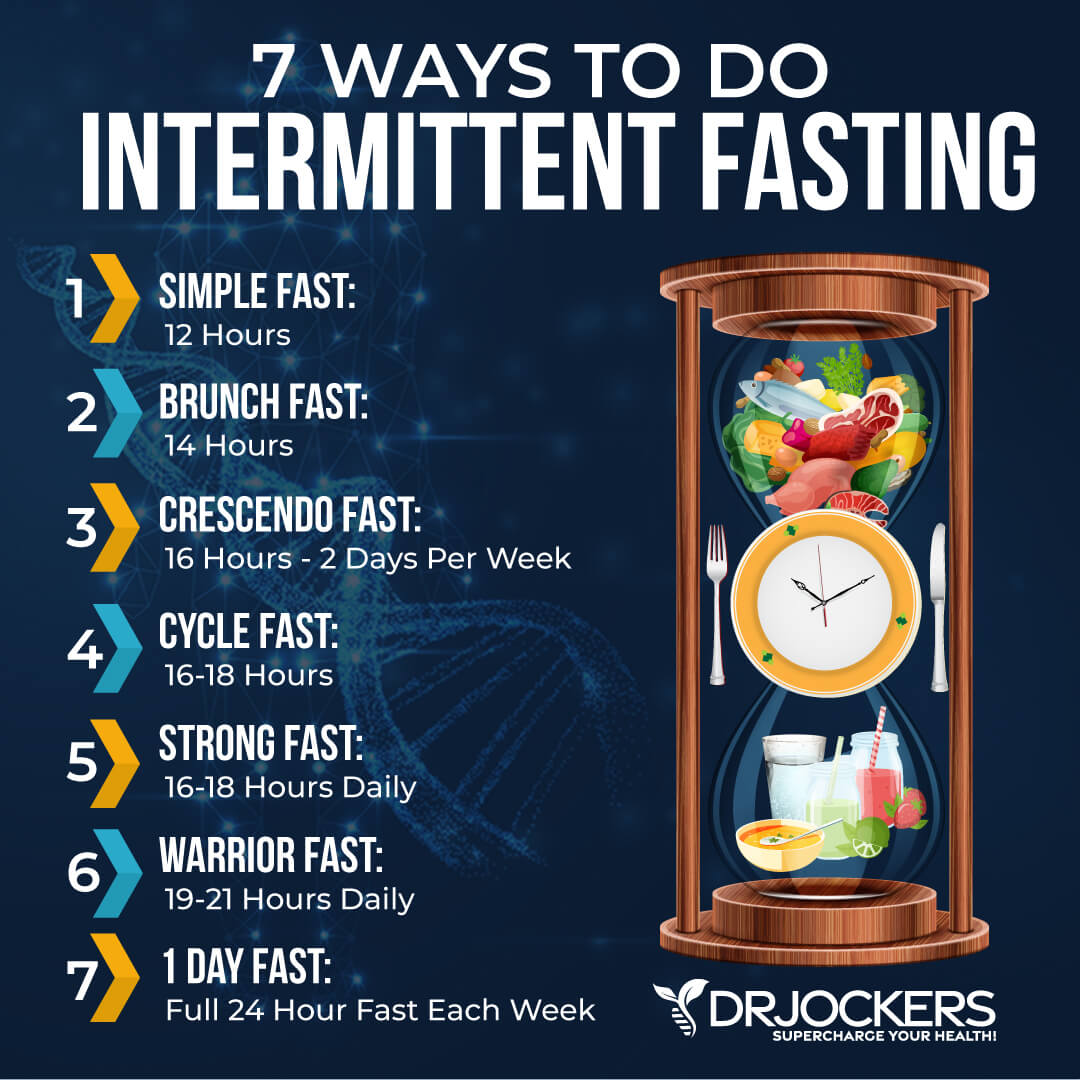
Test For Food Sensitivities:
Most people with adrenal fatigue and poor DHEA levels have leaky gut and food sensitivities. These sensitivities can be hard to pinpoint as they result in delayed symptoms that are not life threatening.
The most common food sensitivities include gluten, corn, dairy, soy, peanuts and sugar. Some other potential food sensitivities to consider include all grains, eggs, nuts, seeds and nightshade vegetables (tomatoes, potatoes, peppers and eggplant).
It can be helpful to do a 28 day elimination diet where you remove all of these and then slowly add these back in one at a time. You can also do both biofeedback and blood testing to determine what foods are causing stress in your system and an elimination diet to test how you are responding to eliminating certain foods for periods of time. You can also
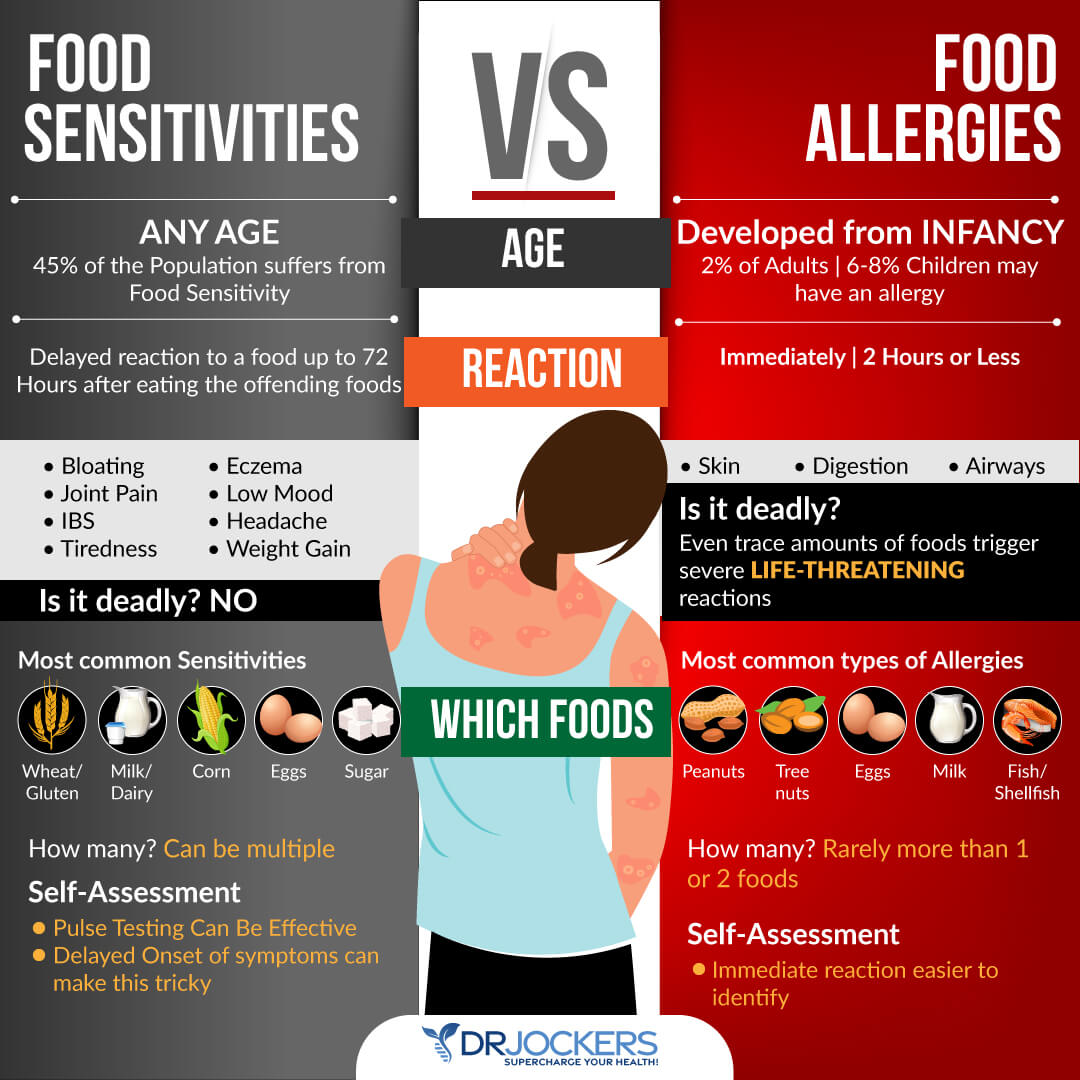
Regular Movement
Movement and exercise are great for enhancing DHEA levels when combined with good nutrition and rest. Do your best to avoid being sedentary but it is also wise to avoid over training and overwhelming your body with exercise. I recommend that you exercise 20 to 30 minutes four or five times a week.
Mix up cardiovascular exercises, such as dancing, biking, rebounding, or jogging with resistance and strength training, such as weight lifting, bodyweight training, or TRX, and low-impact exercises, such as yoga, pilates, TaiChi, Qigong, light swimming, or light walks.
I love high-intensity interval training (HIIT) or Tabata workouts because they combine cardiovascular, strength, and resistance training within a short yet effective workout. In addition to your workout regimen, stay active throughout the day by stretching regularly, going for walks or hikes, playing with your kids or pets, taking the stairs, walking or biking instead of driving short distances, jumping on your trampoline, dancing to your favorite song, or even using a standing desk with an opportunity for small movements and better posture.
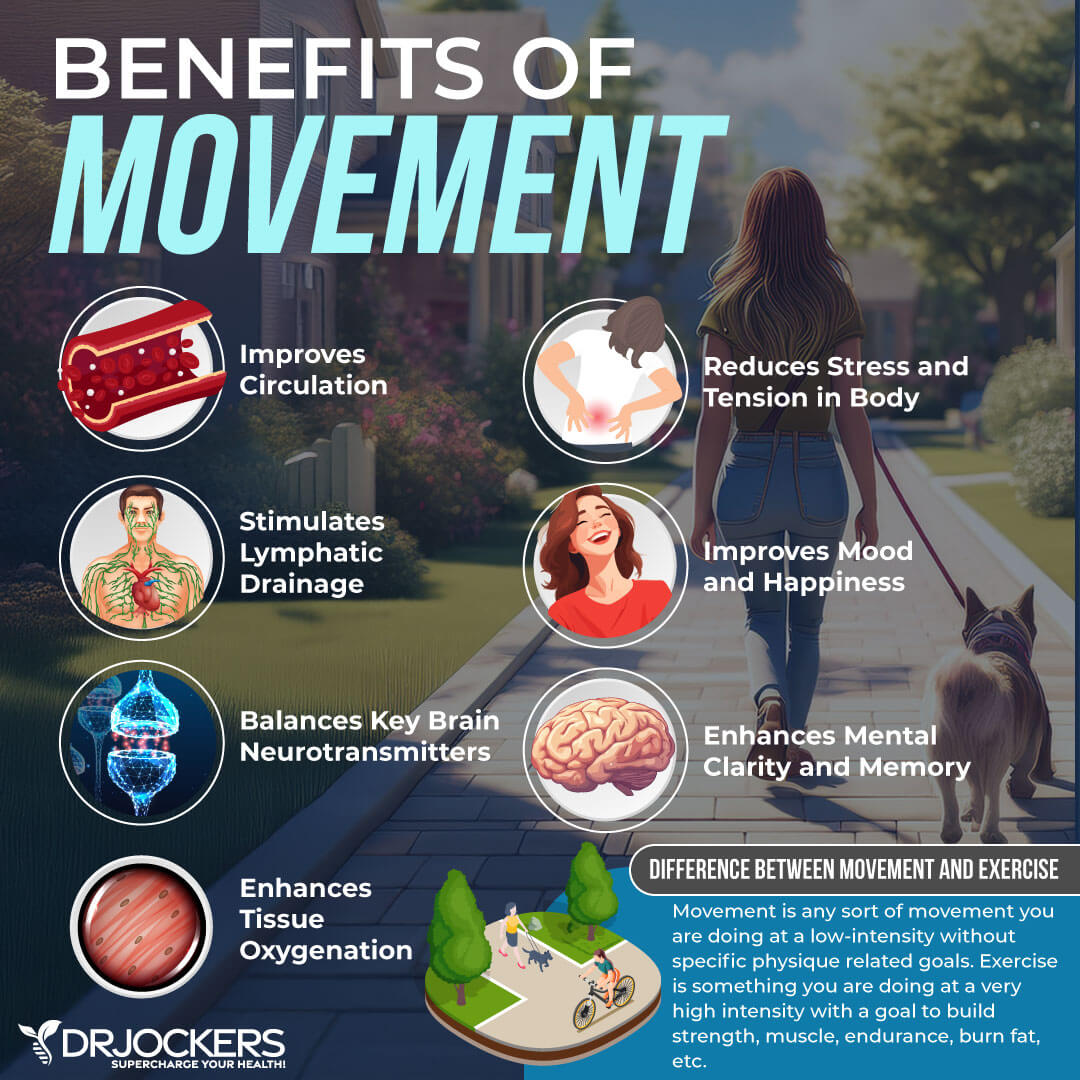
Practice Gratitude and Deep Breathing:
Our thoughts and emotional state play a huge role in our DHEA production. Stress and worry will increase stress hormone production and decrease DHEA levels.
When we practice gratitude and contentment, it helps to settle our mind, balance our stress hormones, support optimal DHEA levels and improve our overall health. I recommend finding ways to practice gratitude throughout the day, use positive affirmations and prayers and demonstrate love and support to the people around you.
Take time to practice deep diaphragmatic breathing on a regular basis. This will help to relax the adrenals and teach your body that you are in a safe, low-stress environment.
Spend time in nature and do some grounding walking barefoot on grass. Practice self-love and laugh with friends and family. Meditate, pray, journal, and try daily breathing exercises. Be grateful and smile more.
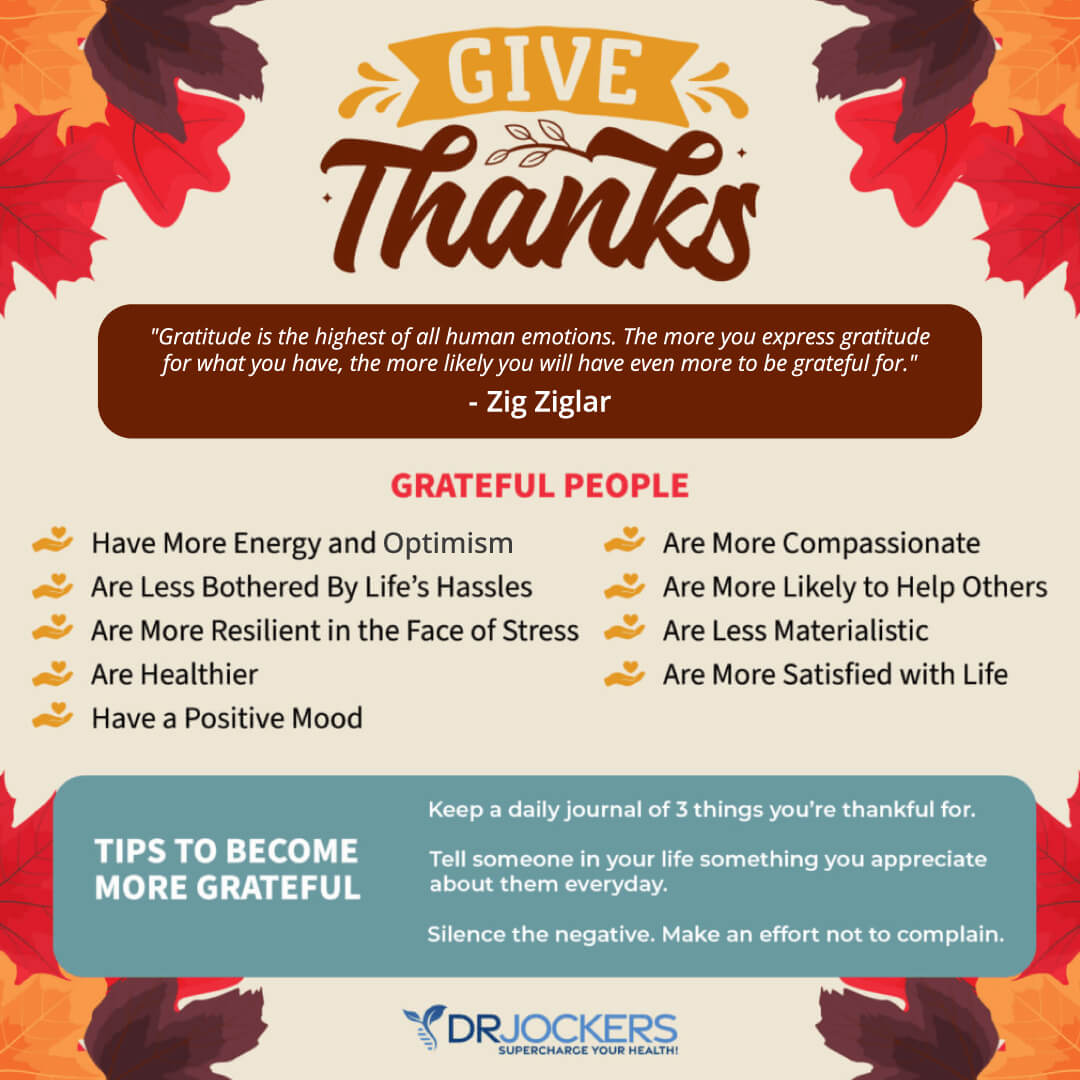
Ground Your Body:
In our society we are surrounded by toxic electromagnetic frequency’s (EMF’s). These EMF’s increase stress and inflammation within the body and can be a trigger for inflammatory activity for some individuals. Too much EMF exposure will deplete DHEA levels and cause increased stress hormone production.
By going outside daily and walking barefoot on grass, dirt or sand you absorb natural EMFs from the ground that balance your electrical rhythms. Follow the steps in this article here.
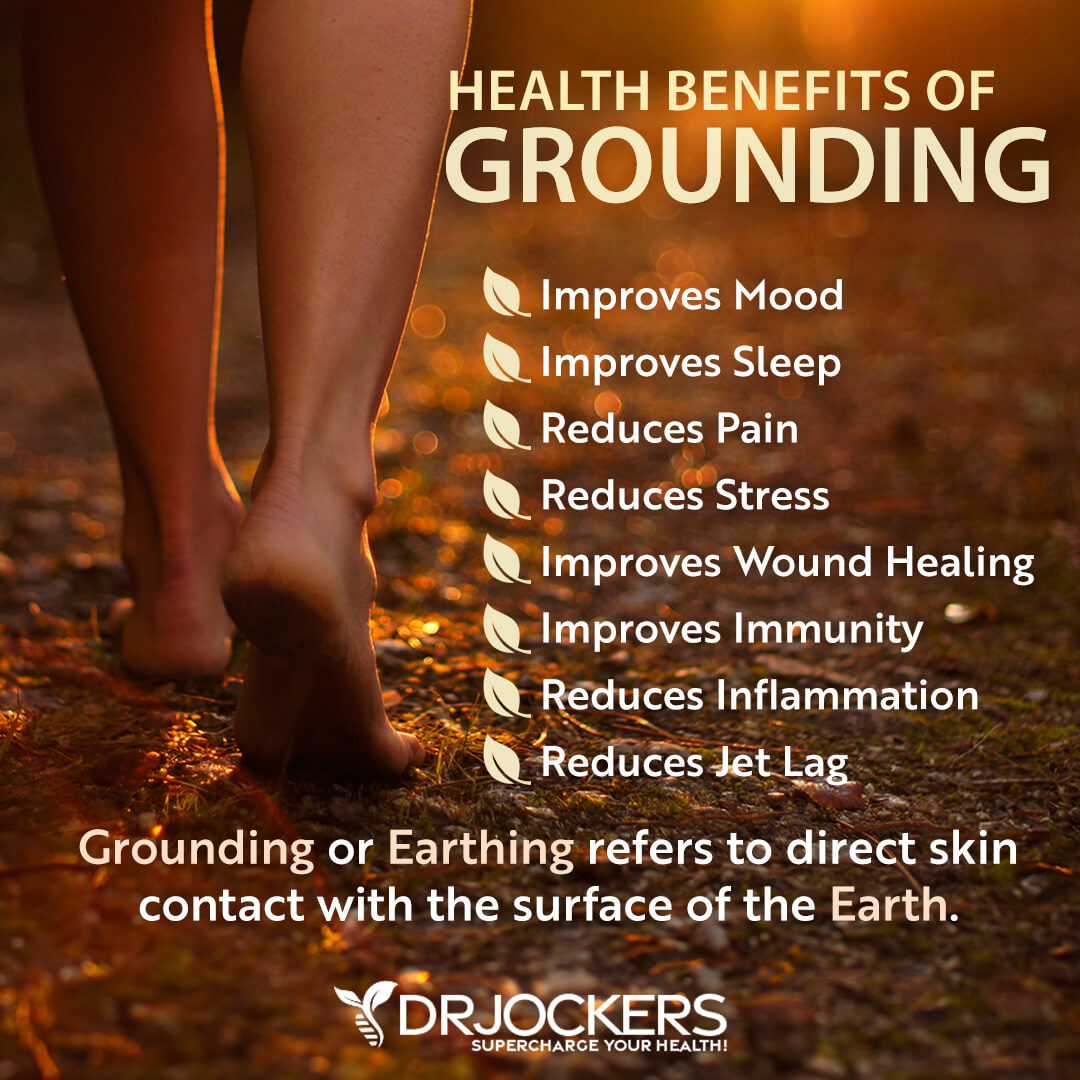
Use Adaptogenic Herbs:
Adaptogens are herbs that contain compounds that help us to adapt to stressors more effectively. They act like a thermostat to assist our body in producing the correct amount of stress and sex hormones to adapt and thrive in our environment. If we are overproducing stress hormone, and experiencing anxiety and insomnia, they will calm our system down and reduce stress hormone production. If we are under producing stress hormone and experiencing fatigue, they will act to help boost it up and improve our energy.
These herbs also support optimal DHEA levels and sex hormone production. Some of the most well known adaptogens include ashwagandha, rhodiola, eleuthero, schisandra, holy basil and ginseng.
Adapt Strong is the number one supplement I recommend to my patients who are looking to increase their energy, reduce their stress levels, and boost their immune system. This supplement uses the power of energy-boosting adaptogenic herbs and nutrients, such as Panax Ginseng, Eleuthero, Schisandra, Rhodiola, Licorice Root, Adrenal Gland from Argentinian bovine, and vitamins B5, B6, and C.
Adapt-Strong supports normalizing the hypothalamic-pituitary-adrenal axis when under stress. It helps to improve your energy and mood, increase your endurance and strength, buffer the effects of stress, and boost your immune system.
Cortisol Defense
If you have high cortisol, anxiety, irritability and trouble sleeping you may have elevated cortisol levels. The best herbs for balancing cortisol are ashwagandha, reishi mushroom, holy basil, banaba leaf and magnolia officinalis. Most studies of ashwagandha use 150-500 milligrams of full-spectrum extract once or twice per day. Start by taking one capsule of the extract per day with a glass of water, in the morning, and consider adding a second dose later in the day based on your results.
We use a high quality ashwagandha along with other adaptogens such as banaba leaf and magnolia officinalis in our Cortisol Defense product which is great for calming the body, reducing anxiety, improving focus and improving sleep quality. This is something I personally use everyday to help me deal with the demands of my life.
Bone Broth Power Protein
I also recommend using Bone Broth Power Protein which is a rich source of collagen protein. Collagen protein is one of the best anti-aging foods as it provides key amino acids necessary for tissue repair such as gelatin, glycosaminoglycans, proline and glycine. Additionally, bone broth is dense in trace minerals that support energy and detoxification.
Bone broth collagen protein is a concentrated form of bone broth, designed for easy usage and when flavored with stevia, it makes for a tasty and nutritious shake.
This protein powder is designed to give your body the nutrients it needs to boost reduce the impact of aging, increase lean body tissue and burn fat. It’s all in a convenient, easy-to-mix and great-tasting Vanilla or Chocolate flavored powder packed with 21g of protein per serving and only 1g of sugar.
Inflammation Crushing Ebundle
The Inflammation Crushing Ebundle is designed to help you improve your brain, liver, immune system and discover the healing strategies, foods and recipes to burn fat, reduce inflammation and thrive in life!
As a doctor of natural medicine, I have spent the past 20 years studying the best healing strategies and worked with hundreds of coaching clients, helping them overcome chronic health conditions and optimize their overall health.
In our Inflammation Crushing Ebundle, I have put together my very best strategies to reduce inflammation and optimize your healing potential. Take a look at what you will get inside these valuable guides below!
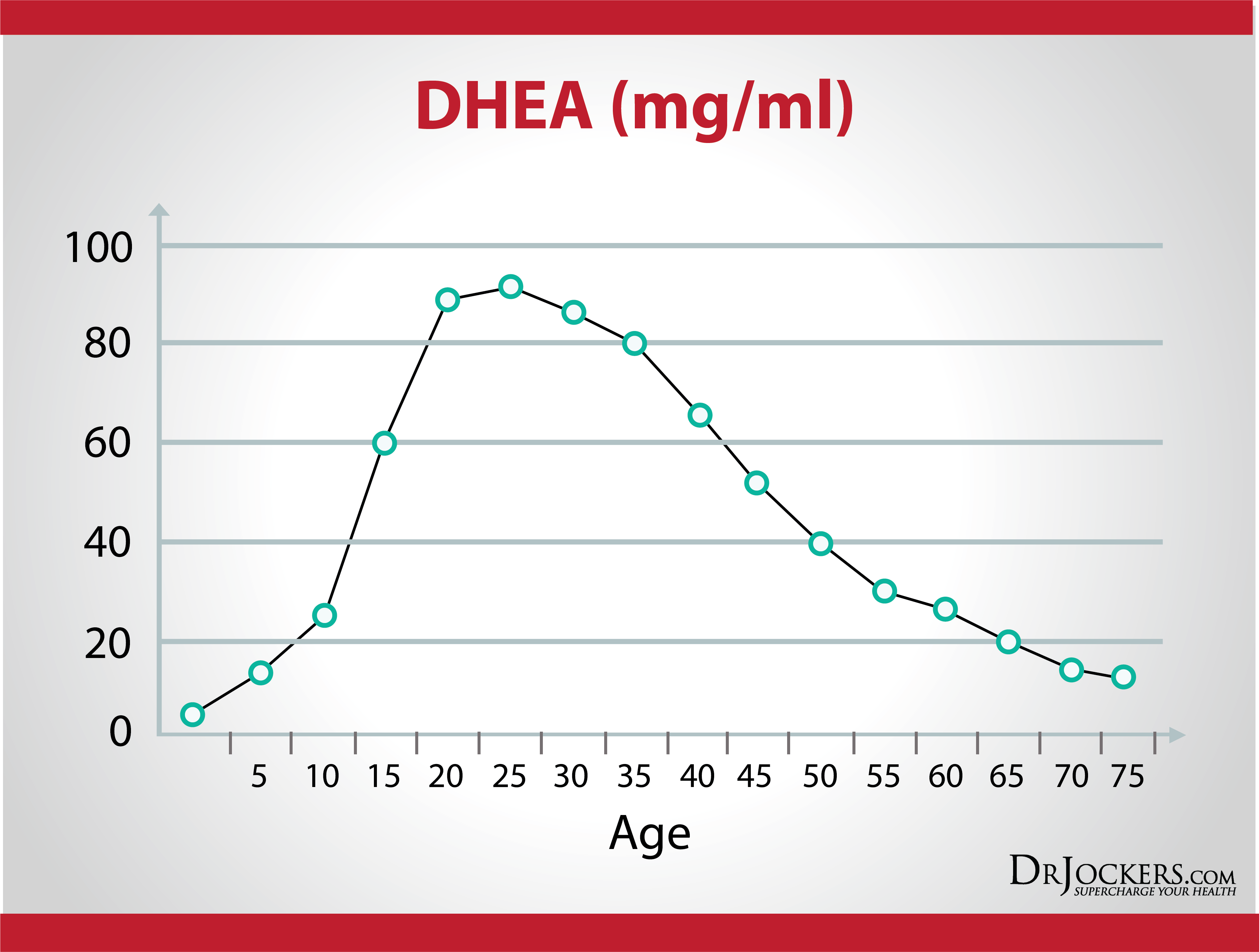
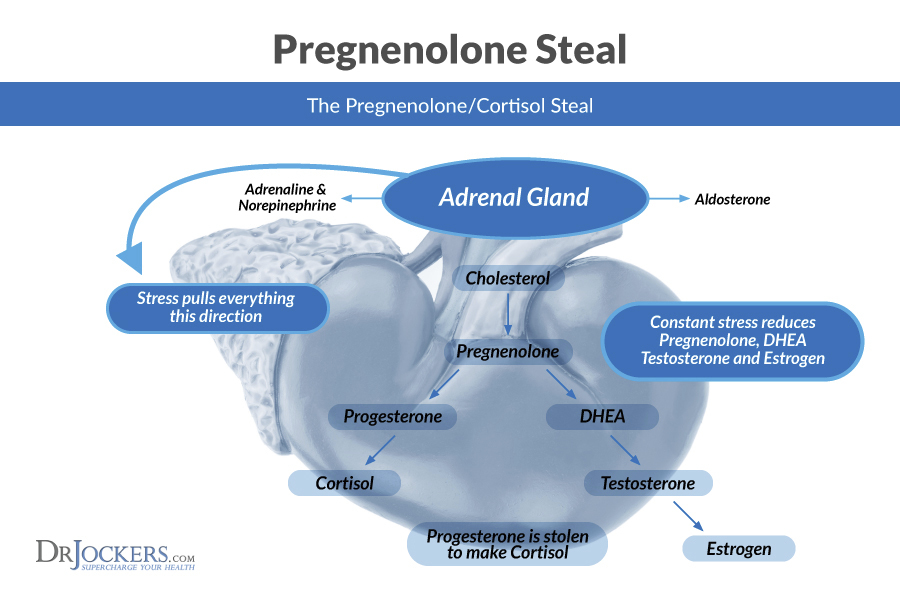
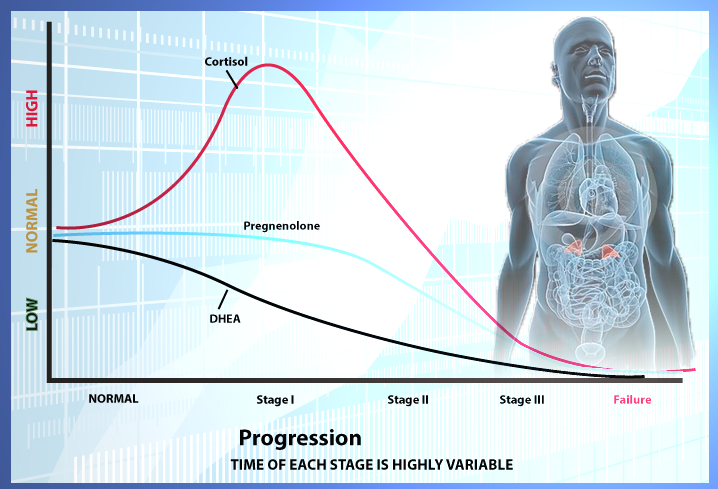
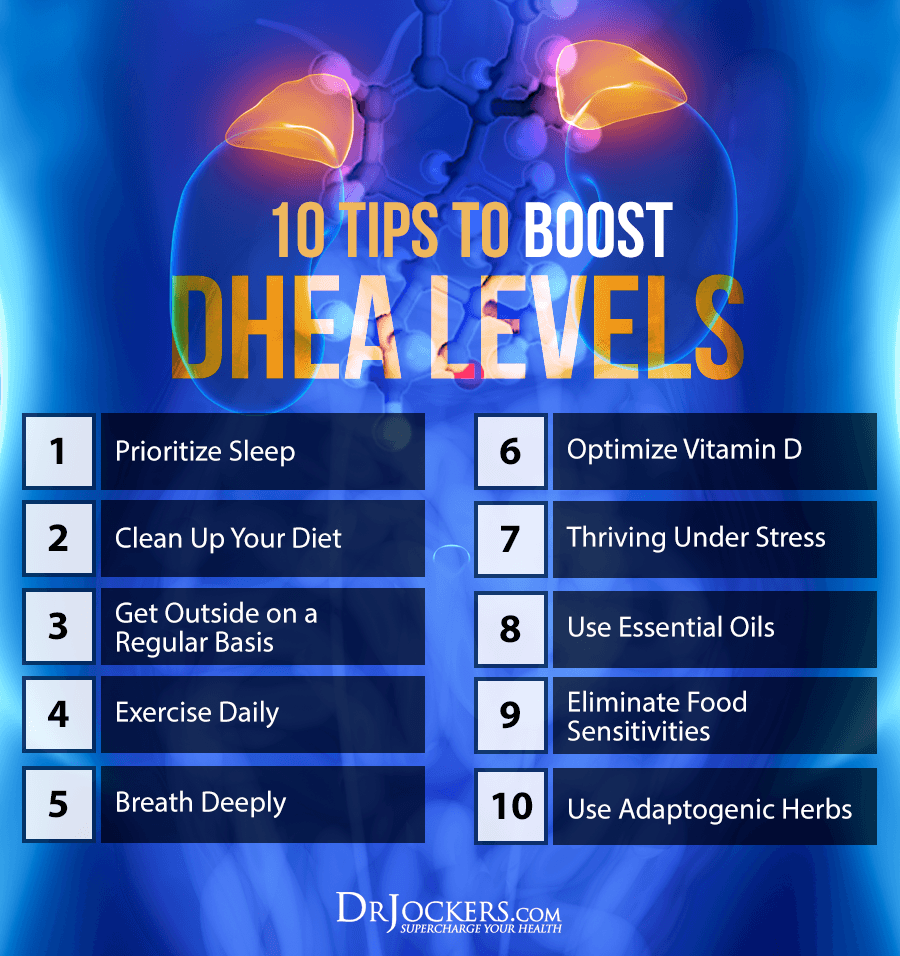







Great article, thank you!
Thank you Carolin!
Practice and develop habits pertaining to compassion
Yes for sure Johnny!
Awesome resource and information! Thank you for sharing your website and contents!
Have an excellent day!
Thank you so much Raine!
Blessings!
A good read…! Thanks🔥
Thanks for reading Ced!
Hi Dr Jockers, how do you think your DHEA levels react if you have Addison’s disease? Interested to know your professional opinion. Thanks and great article
They would tend to be lower David!
I feel body pain weakness ,Sextually weakness,I wanna live healthy life recommend me some thing good for my life
Send an email to nutrition@drjockers.com for coaching!
Thank you so much for all of the helpful articles you have shared on your site. I was recently diagnosed with adrenal fatigue, and especially low levels of cortisol. I was recommended Ashwagandha from my doctor and it seems to be the norm for adrenal fatigue. However, you mention here that it lowers cortisol by 26%. While my DHEA was also low, I wonder if it make sense for me to continue with the Ashwagandha if my cortisol is already so low. Literally the gauge on the test results showed I was on empty. Thanks so much for your help!
Hey Stephanie, thanks for sharing. Good news, ashwagandha and other herbal adaptogens help to balance our stress hormones and DHEA. So if your levels were already low in cortisol, it will help bring them up. The most important thing is to check in on how you feel with the specific adaptogen and if you feel better, continue using it.
Is Ashwaghanda safe for Stage 3 CKD with T2 Diabetes (A1c 5.2)?
Yes but it is always wise to discuss this with your physician.
Hi
I’m in NZ…how / where can I order the cortisol defence and adapt strong? Shipping is an issue amid the lockdowns etc.
Yes you can contact our customer service at sales@drjockers.com
Hi thanks so much for the article I will read it again and implement as much of what you suggest as I can!… (I already follow the GAPS protocol & 100% organic diet and am very health conscious with food so I should be ok there :))… but my doctor wants me to take a compounded DHEA from a pharmacy because my levels are extremely low (my level is 2, and apparently 10 is high/good and 0 can’t sustain life… so mine is very low)…
What do you think about synthetic versions? I would much rather do this without pharmaceuticals…
I think my main cause (judging from your article above) is likely high stress and lack of exercise as well as extremely low vitamin D levels (which I am now supplementing for).
Any thoughts?! 🙂
Yes, most likely you don’t need a DHEA supplement, just need to get stress under control, stabilize your blood sugar levels and use adaptogens.
Dr. Jockers …… thank you for sharing.
Richard
I am a practitioner and learned lots of your website.
Thank you
Richard
This was an ama@outlook.com article. I am a functional dental hygienist and professional speaker/writer on the oral-systemic connection. I research a lot of studies and listen to leading experts. This article includes mist if not all of the most powerful aspects of becoming healthy. I really appreciate your message and live changing information. Thank you so much.